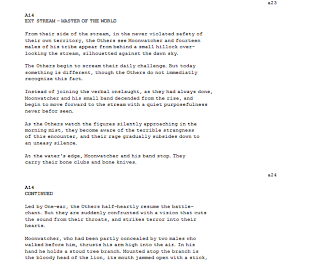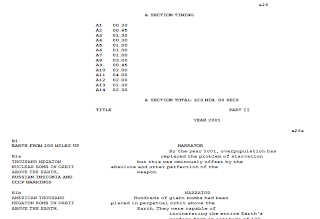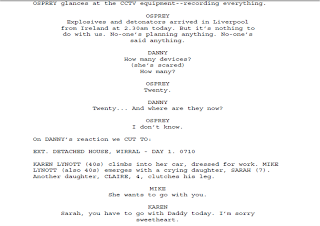

These screenshots from a movie script (2001: A Space Odyssey) show the huge emphasis on explicit direction in the script. There are large chunks written describing each individual shot. The script does not actually describe the shot, but gives a huge amount of plot detail, telling the story as it would be in a book. From this, the director creates a scene, with appropriate direction based on the story as they have been told in the script. The scripr then directs how long each shot and the the section as a whole are expected to last. This means that the director knows how much time to aim to show the scene in.
The dialogue of the script runs down the centre of the page, while the images that are going to be displayed during this are shown to the left. Thus the director, reading the script, can match the scene directions up to the scripted speech.

In this extract from a television script (Spooks) the differences are obvious. The directions are much more concise and to the point, giving the scene, the people and objects in it, and the ages of any characters introduced in the shot. This is followed by the dialogue of the characters as scripted, with the action interspersed as it happens in the scene. This means that the director and actors already know when events happen within a scene.
This shows that movie directors are given much more responsibility within exactly what happens within a scene and when, and that, more importantly, they are allowed a larger interpretation of the narrative. In comparison, television directors have a less prominent job, but still have an important task in set design, deciding on the "look" of the set, and the type of shots used in the scene. It is worth noting that movie directors usually achieve far greater fame than those in television.

No comments:
Post a Comment